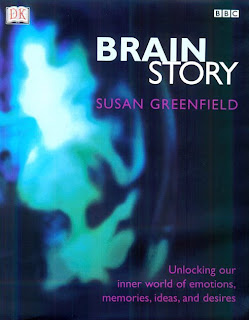Why do we think and feel as we do? For years man has sought to understand the workings of the mind. Now, with advances in modern-day technology and developments in neuroscience, a whole new world of brain research is opening up.
Understanding our minds is becoming a reality. Guided by top neuroscientist Susan Greenfield, Brain Story attempts to answer the question “What is my mind and who am I?” We talk to philosophers, clinicians, neurosurgeons and their patients to discover quite what a finely balanced and complex machine the brain is.
Watch the full documentary now
Susan Greenfield explains why she believes all aspects of human experience will eventually be explained in terms of the physical processes of the brain. The story of how we have gradually come to understand the astonishing complexity of the brain is revealed, from the earliest crude studies of the effects of brain injury, through to the latest insights from direct stimulation of specific areas in patients undergoing brain surgery whilst wide awake. Is it possible that our most spiritual feelings are merely the result of electrical activity in the temporal lobe?
 I. All in the Mind
I. All in the MindWhere do emotions come from? Why do they feel so different from thoughts? Susan Greenfield looks at some of the old attempts to explain emotion in terms of brain areas and explains why she believes the answer must lie in the biochemistry of the brain – all the hundreds of chemical neurotransmitters which bathe the nerves.
II. In the Heat of the Moment
The illusion of vision. It feels as though we open our eyes and just see what’s out there, but the more we learn about the brain’s visual system, the further it seems this is from the truth. Patients who can’t see movement or recognize faces, reveal the tricks and short cuts the brain uses to construct an illusion of reality. Is the brain making up so much of what we think we’re seeing that vision is really just dreaming with your eyes open?
III. The Mind’s Eye
What is it about brains that has put us in charge of the planet? Were have humans’ unique linguistic abilities come from? Are there special structures in our brains which no other animals possess? Or is it possible that our sophisticated rich cultures are merely the result of having larger brains? Susan Greenfield explains why she believes we are truly just big-brained chimps.
IV. First Among Equals
The changes in the brain during the growth and development of a baby into an adult are explored. Susan Greenfield looks at how little of the fine structure of our brains is predetermined at birth, how the connections between nerves are constantly changing in response to what we encounter in the outside world. She explains her view that learning, memory and even the process of becoming a unique individual, should all be seen as a restless brain adapting minute by minute to the environment it encounters. Life is about how the world leaves its mark on us.
V. Growing the Mind
How do our brains generate consciousness? We take it for granted that the brain makes being alive feel the way it does, but there’s no reason why it should.The brain is made of the same biological ingredients as the rest of the body, and yet somehow it manages to generate the indescribable phenomenon of consciousness. Consciousness is far more than just being able to imagine; it’s a whole extra dimension. Susan Greenfield explains why she believes that the existence of a private world of experiences and feelings, is actually more extraordinary than the fact that living things evolved at all. She explores how we are finally taking the first steps towards understanding this tantalising paradox, and the implications for our view of ourselves as something more than complex machines.
VI. The Final Mystery











Cap comentari:
Publica un comentari a l'entrada
Què t'ha semblat el post? (Només s'acceptaran comentaris d'usuaris registrats)